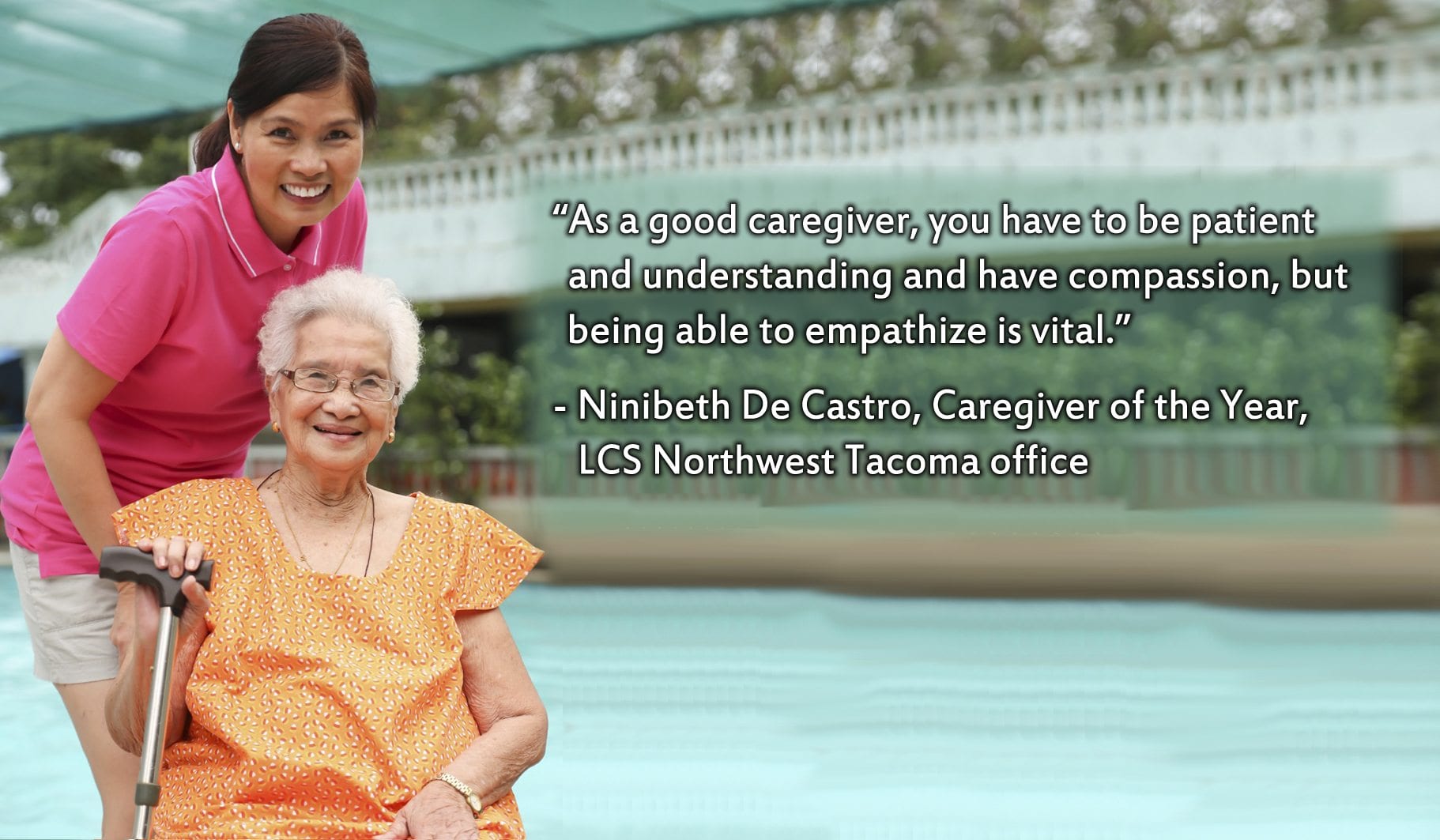Empathy Key for Caregiver of the Year

The role of a caregiver is to provide assistance to elderly clients, but the key to doing the job well is empathy.
“As a good caregiver, you have to be patient and understanding and have compassion, but being able to empathize is vital,” says LCS Northwest’s Ninibeth De Castro. She was recently named Caregiver of the Year for our Tacoma Home Care program in South Puget Sound.
Originally from the Philippines, De Castro lived in California for 27 years and worked at Hunter Douglas Window Company. When her mother had a stroke, she enjoyed spending time with and caring for her. Eventually De Castro began working with other home-care clients, and realized she liked connecting with seniors and spending time with them.
“I became a caregiver for some of my mother’s friends, and even taught them how to dance for an event they were attending,” she remembers. “But then at the event they wouldn’t dance unless I danced with them!”
When her husband received a job offer in Washington State, De Castro saw it as an opportunity to try a new place.
“I said ‘why not?’ Washington is different. It’s nice here with less traffic and friendly people,” she said. “It’s much calmer, and that’s what I like.”
With her husband’s encouragement, De Castro started working as a home care aide in 2013 for LCS Northwest’s South Puget Sound Home Care program. She works mostly with clients who are experiencing dementia and Alzheimer’s. She stresses the importance of routine and engagement for people with dementia, and adds that they enjoy the familiarity and excitement of small activities.
“We need to show them love and that we care,” De Castro said. “It’s not that we just go to their house and do things for them. We have to add more to it, like activities and exercises.”
Trained in skilled nursing, occupational and physical therapy, De Castro strives to bring joy and laughter to the lives of her clients. Positive attitude has a great impact on clients, so she tries to leave her personal problems at home and not let the stress of caregiving get to her.
“I want my clients to be happy and when I see them I need to have a smile on my face because they deserve the best,” she said. “Everything is difficult when you have these clients, but for me it’s not difficult because I get to know them so I can anticipate their needs.”
At the end of a long day of preparing meals, toileting, puzzles and exercises, De Castro shares how client happiness makes her job and its difficulties entirely worthwhile.
“I hold their hands and speak nicely to them, and when I see them happy, it’s like the day is complete,” De Castro said. “Because they laugh and keep smiling I know they feel important.”
This article was written by Lilia Cabello Drain.

0 Comments